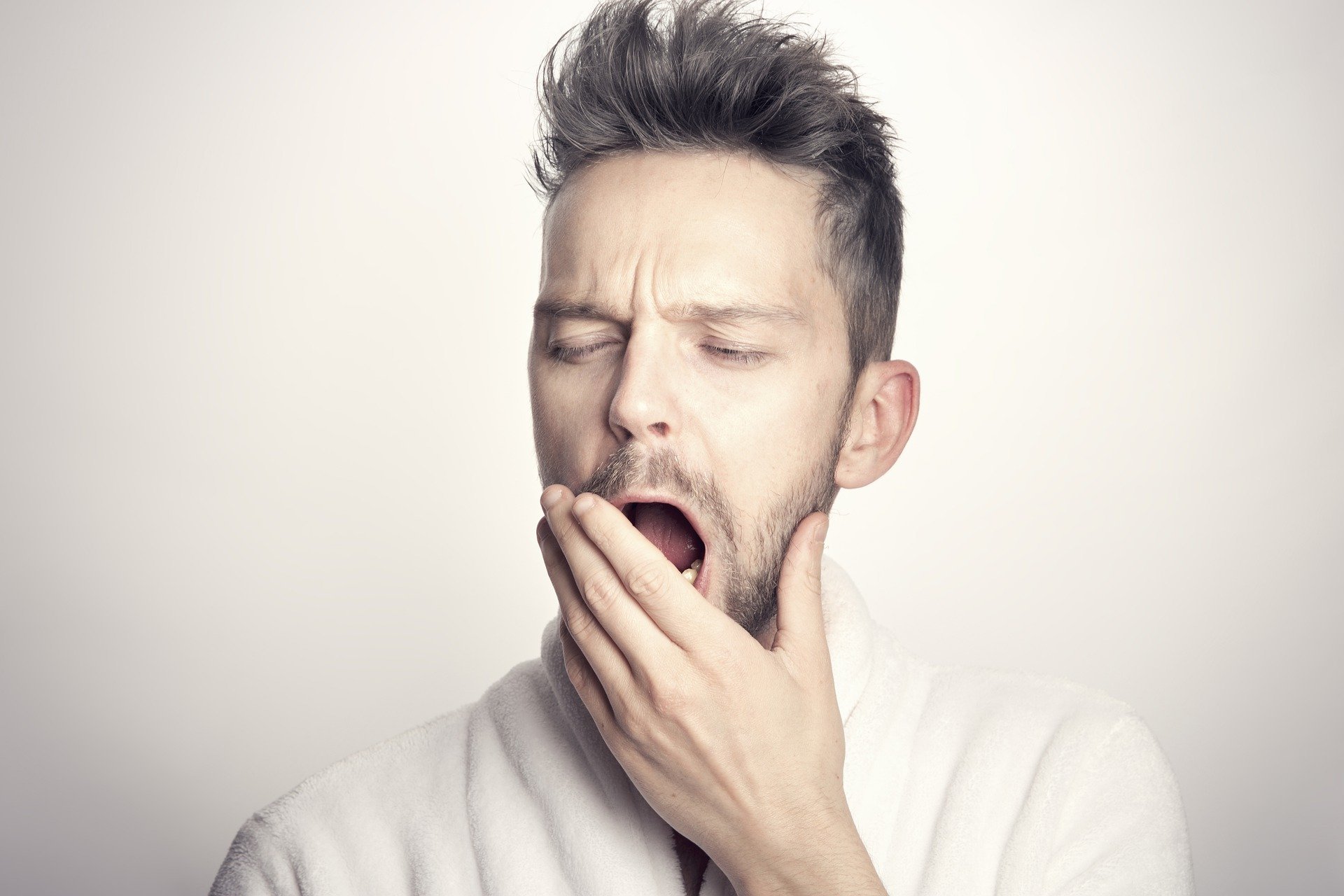
(Banner image Designed by Freepik)
Just recently, a friend of mine met with an accident on the highway. He hit the divider and ensured a bill of Rs.50000 at the car service station. Thankfully, he wasn’t hurt and thus we heaved a sigh of relief. I reminded him of the talk we had a few months ago about not drinking and driving. “I was listening to you then and followed what you said”, my friend assured me. But this time, it wasn’t about me drinking and driving. I just fell asleep while I was driving on the highway. It wasn’t that my friend had started early or was driving late in the night, thus compromising his sleep. We went through the 5-why investigation and deduced that it was my friend’s lifestyle which had a lot to do with him falling asleep.
Sleep Management! Isn’t that something which is going wrong for a lot of us? Sleep is the most underrated aspect in our life. In this blog, I intend to highlight best practices in sleep management. But why do we need to take our sleep seriously? Faulty sleep management or practices leads to a lot of challenges including:
- Health issues (mental & physical)
- Affects alertness
- Degrades productivity
- Affects emotional resilience
- Results in fluffy eyes and dark spots
- Affects creativity and memory
There are various reasons why we don’t sleep well and some of them are:
- Stress, tension
- Worry, over-thinking, anxiety related to future events
- Loss of any kind
- Faulty sleeping strategy (before and during going to bed)
- Faulty sleeping time-table
- Unwanted habits like smoking, drinking affecting sound sleep
- Digestion and acidity issues
- Psychological/Psychiatric issues like depression, insomnia
Well, through this blog, I will deal with some of these issues and sort them out for you so that you ‘sleep in peace’ and not ‘rest in peace’ because of lack of sleep 😊
To begin with, let me first address the burning question in your head.
“How much sleep do we need?”:
I will respond to that with another question, “How much sleep do you need”? do this small experiment for a week. Whenever you go to bed, look at the time and register it in your head. Of course, you wouldn’t know the exact time when you fall asleep because 50 to 60% of the time getting into sleep, you are in trance. But then, you would know the time approximately. Now, the first time you open your eyes, which means you come out of your sleep, see time it is. You should be waking up naturally and not because of any disturbance or alarm. Check the time. Calculate the number of hours you slept. Do this for a week and calculate the average number of hours you slept. Now you know how much natural sleep you need. Anything beyond that is just temptation to lie in bed. The sleep duration can be different for different people. There is no such thing as one shoe fits all concept, as far as sleep is concerned. That is why, when someone says that we all need 8 hours sleep, I just think of people like Margaret Thatcher, Narendra Modi, my mother, my uncles who don’t need more than 4 hours sleep. It is not the duration of sleep, but the quality of sleep that matters. As far as possible, keep the same time of going to sleep and waking up. If the time of going to sleep fluctuates, it affects the metabolic cycle along with sleep cycle as well.
Faulty sleeping strategy:
Let us recount what most people do before they go to bed:
- We have dinner (most people have it late)
- Switch on the bedroom and bathroom lights
- We brush our teeth and wash our face
- Check the mobile or watch TV before going to sleep
- Try to sleep
Now, I am not suggesting that this strategy will not work at all for anyone. It may be working for some people who have anchored themselves to watching TV or checking mobile while in bed to ooze out sleep. But the scheme of events mentioned do not fall in line with getting sound or instant sleep. I mean, think about it. You have late dinner, and that just makes your metabolism run like a rabbit. Doesn’t make sense that you get sound sleep after that. Ideally, before you go to sleep, you should be dimming the lights and being as dry as possible, rather than washing your face just before the sleep hour. Also, the moment you start watching something interesting on TV or Mobile, it just lights up your entire neurology. I wonder how your brain will find a way to sleep.
So, the ideal strategy is having early dinner (at least 2 hours before your scheduled sleep time), brushing immediately after your dinner or one hour before you go to sleep, dim the lights half an hour before, and be comfortable in your bed till sleep fairy visits you. Having dinner early will help in reducing digestion issues and acidity.
Your Bedroom is not your living room:
Have you ever wondered, why are there different rooms in your house? Why not just have one big room and one other room where you clean yourself? Well, they that concept in studio apartments. But I don’t see that idea catching itself up too much and for obvious reasons.
Each room is meant for a specific purpose; kitchen for cooking, dining room for dining, living room for watching TV, recreation, entertaining guests, playing games etc., and bedroom to sleep. I believe, in all the other rooms, we do just what they are meant for, except the bedroom. We sometimes eat, watch TV, work on our laptop and many more such things in the bedroom apart from sleeping.
In a nutshell, we are consciously or unconsciously anchoring the bedroom as a place where we do a variety of things. This doesn’t work very well for the unconscious mind, especially when it is preparing to go into the sleep mode. Make sure you use the bedroom only to sleep and not anything else. Basically, when you are lying in the bed at night, thoughts of only sleeping should come to your mind.
One of the ways to deal with insomnia:
I understand insomnia may have psychiatric dimensions or links which may be resolved by Psychiatrists. But I have a thought related to how we anchor the bedroom (and the bed) as the place where we suffer from lack of sleep or insomnia.
What happens when we get into the bed and we don’t get sleep? We roll from one side to another, stare at the roof, have wandering thoughts, beg to our mind to get sleep and before you know it, it is two or three hours in the bed without sleep. With insomniacs, this would be a regular affair. My belief is the room is slowly and surely getting anchored as a place where ‘I don’t get sleep’.
There is a better way of dealing with this. Whether you are an insomniac or not, this will help. Let us say you are lying in bed and not getting sleep. Wait for 30 min. If you don’t get sleep in 30 min, get up and go to the living room and read a book. Preferably some book related to self-help or which involves some learning. Not some book which is thrilling, full of suspense or spooky which would light up your entire neurology and further push you away from sleep. In a nutshell, I am saying read a boring book. This will make you sleepy. The moment you reach a point when you are about to drop the book because you are too sleepy, you keep the book there, go to the bedroom to go to bed. So, what is the moral of the story? Change the pattern and anchor your bedroom as a place which meant only to sleep.
Dealing with unwanted habits:
It is established that people with habits related to alcoholism, smoking, drugs etc. have problems in getting sound sleep and could suffer from sleep disorders. If you really wish to let go of these habits, watch my video here.
Dealing with Stress, Negative Emotions, Anxiety etc.:
There is no doubt that a disturbed state of mind kills sleep. There are various methods of channelising, regulating and resolving unwanted emotions. Read more about various techniques here:
- 4 quick hacks to manage your emotions effectively
- Why is it okay to cry
- Are you depressed or are you sad
- Deal with negative emotions effectively using timelines
- Build your future and deal with anxiety using timelines
- 11 ways of dealing with anxiety and stress
Sleep Management, ensuring good sleep:
Some important points to remember along with the ones already mentioned above:
- Make sure you exercise in the morning and/or evening. It is important to utilise and spend your energy and be sufficiently tired for a good sleep.
- No afternoon naps. May be power naps of 10 min would be good to energize yourself.
- Early dinner and early brushing teeth helps as already mentioned.
- No coffee or tea after 7 PM. Warm milk is good for sound sleep.
- Keep your mobile on silent or switched off mode while going to sleep.
- Sleep in the East-West direction as there are electro-magnetic fields flowing from North to South which hamper the state of mind.
I hope these points would help in bringing sound sleep back into your life. Currently, I am working with that friend of mine who met with accident on the highway due to bad sleep management. I can say confidently he is getting better. Of course you can connect with me as well to have better sleep management so that you are awake when it matters the most and asleep to see that most compelling dreams.









